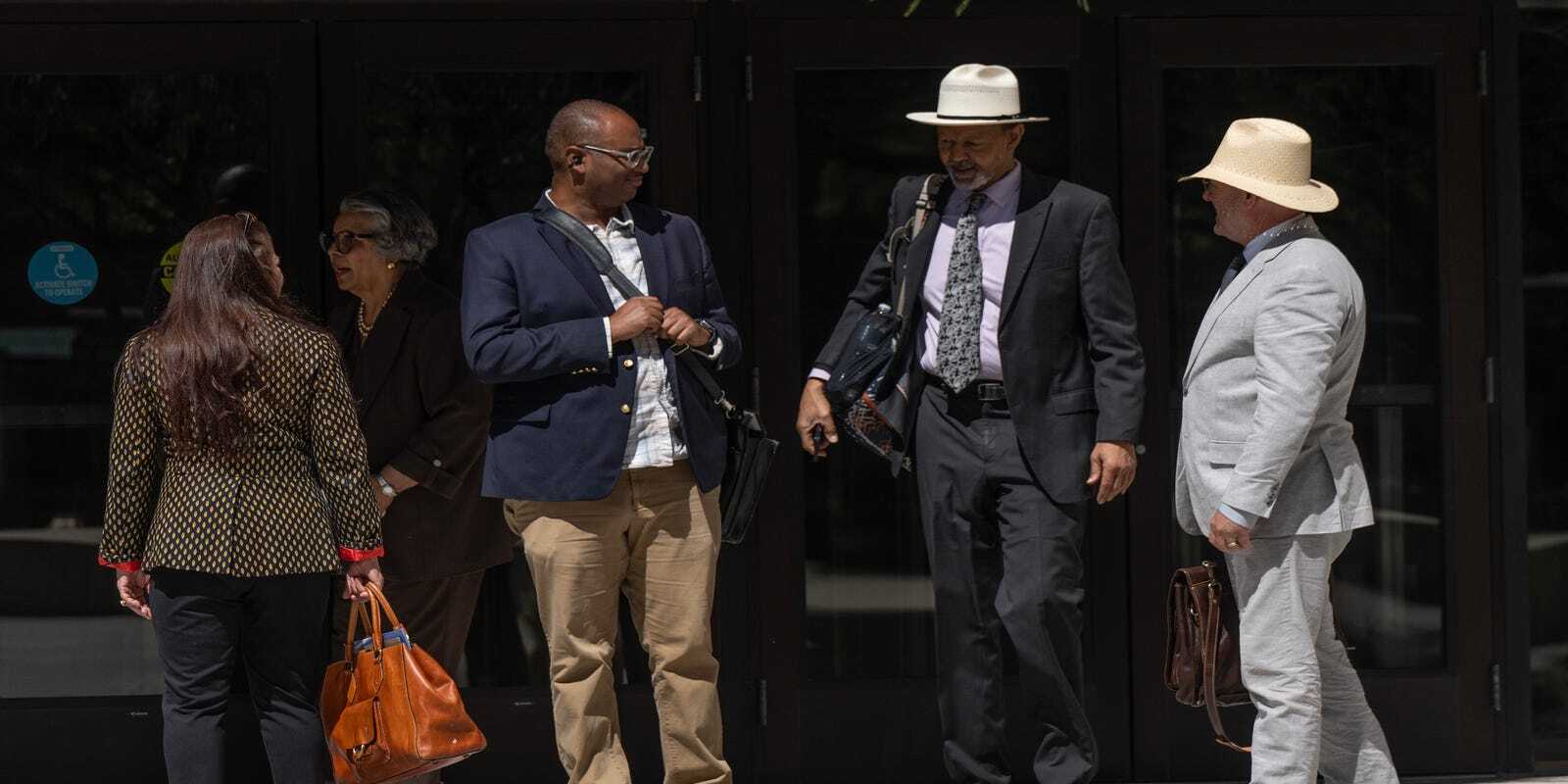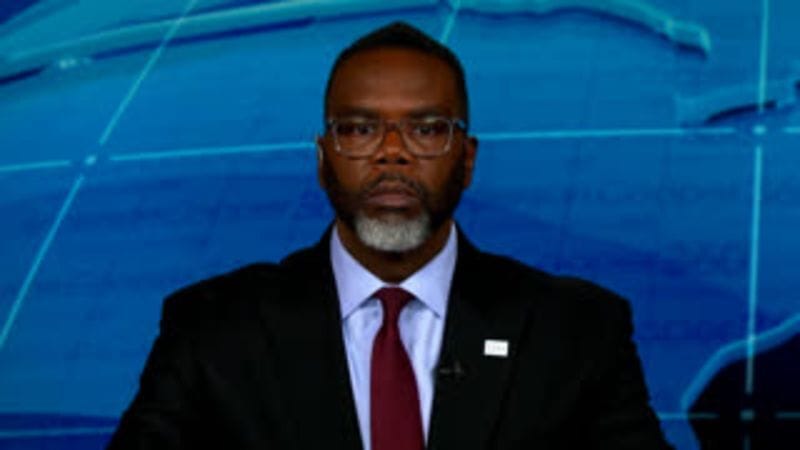- BlackVoter.Org
- Posts
- BlackVoter.Org
BlackVoter.Org


In their thought-provoking opinion piece, Angela Hanks and Jeremy Edwards dive into the stark realities Black Americans face under Donald Trump’s policies. While Trump initially posed the question, “What do you have to lose?” many are realizing they have everything at stake.
Despite some gains in Black unemployment during Trump’s first term, his subsequent economic policies ignited rising joblessness and inflated costs, causing financial turmoil, especially in marginalized communities. The authors highlight alarming statistics, revealing that many Black Americans are struggling to make ends meet, often turning to high-interest debt solutions.
Cuts to essential programs like Medicaid and education funding compound these challenges, threatening long-term repercussions for Black families. Ultimately, as Trump asks what Black America has to lose, the answer is unequivocal: everything that remains.
Hanks and Edwards compellingly illustrate the urgency for Black voters to consider the profound implications of their choices in the upcoming elections.

In a surprising twist on voter rights, Kelvin King, a Black Republican candidate for Georgia’s secretary of state, advocates for the elimination of automatic voter registration. While the current system has boosted registration rates significantly, King argues it compromises the integrity of voter rolls by allowing ineligible voters, including undocumented immigrants, to remain.
He insists that ensuring access to the ballot box for Black Georgians must also include safeguarding against potential fraud. With a military background and a construction business, King emphasizes the need for improved voter list maintenance and plans to advocate for the use of paper ballots to verify electronic counts.
His campaign seeks to address both the accessibility and correctness of voting, reflecting a nuanced stance that challenges conventional party views. As King prepares to face off against other candidates in the upcoming election, his perspective invites debate on balancing inclusion with election security.

In a dramatic civil rights trial in Texas, allegations are flying that Republican leaders intentionally designed redistricting maps to undermine minority voting power. With the midterms on the horizon, Democrats assert these maps, allegedly crafted under Trump's direction, dilute the votes of Hispanic and Black communities, historically Democratic strongholds.
Testimonies from state legislators suggest the process was rushed, sidelining community input, with Rep. Joe Moody stating that the proposed maps were likely created before any discussions began.
As legislators argue that these changes strategically favor Republican seats, the stakes are high. A three-judge panel is set to determine the fate of these redistricting plans, which could reshape Texas politics for years to come.
The trial is capturing intense scrutiny as both sides lay out their case, with key witnesses implying that the interests of minority voters were deliberately overlooked in favor of partisan gains.

California's Black legislators are undeterred in their fight for reparations, despite a changing political climate under the current Trump administration. In the wake of nationwide protests for racial justice following George Floyd's murder, California established a task force to address the harm caused by slavery.
Though progress has been made, with some bills already signed into law by Governor Gavin Newsom, many advocate for more direct action. The recent introduction of a new suite of reparations bills, including Assembly Bill 7, which allows for admission preferences in universities based on lineage, aims to strengthen this movement.
This approach, shifting focus from race to genealogy, highlights the unique legacy of slavery while navigating complex political terrain—especially given California's ban on affirmative action. As they push forward, California's Black legislators remain committed, envisioning a decisive step towards justice and reconciliation in the face of ongoing challenges.

In a bold response to President Trump's decision to deploy National Guard troops in Chicago, Mayor Brandon Johnson declared the move "dangerous" as tensions rise over federal immigration policies. The deployment comes amidst ongoing protests in Democratic-led cities against immigration enforcement.
Johnson emphasized the potential for escalated unrest, highlighting the challenges of utilizing military forces in civilian contexts. Critics, including several state attorneys general, warn that Trump's actions could exacerbate existing divides and criminalize communities in distress.
The situation has sparked a heated debate about federal overreach in local affairs, raising concerns about the implications for civil liberties and community relations. As Chicago braces for tough times ahead, the mayor's assertions cast a spotlight on the delicate balance between law enforcement and community trust.
Will this combination of military presence and civil unrest lead to more solutions or further chaos? Only time will tell.

In "The Forgotten Fight: 10 Black Suffragists Who Battled for the Vote Beyond the 19th Amendment," Black Enterprise shines a much-needed spotlight on the often-overlooked contributions of Black women in the suffrage movement. While figures like Susan B.
Anthony and Elizabeth Cady Stanton are commonly recognized, the article emphasizes that the fight for voting rights didn't end with the 1920 ratification of the 19th Amendment. Black suffragists, facing both racial and gender discrimination, continued to advocate for equitable voting access long after.
Through powerful profiles of trailblazers—like Mary Church Terrell, Fannie Lou Hamer, and Ida B. Wells—this piece celebrates their resilience and commitment, countering a sanitized historical narrative.
It highlights how these women not only championed voting rights but also actively fought against systemic racism, ensuring a broader fight for civil rights. By recounting their stories, the article calls for a more inclusive understanding of the suffrage movement, enriching our historical landscape.

At the recent Congressional Black Caucus Annual Legislative Conference (ALC), Maryland Governor Wes Moore and Pastor Howard John Wesley delivered passionate addresses, criticizing Donald Trump's administration while rallying support among attendees. Moore emphasized the enduring strength of the Black community, rooted in the history of the CBC, with a powerful reminder of resilience despite challenging times.
Wesley, renowned for his dynamic speech style, wove popular culture into his critique of the Trump administration, highlighting its divisive tactics and assaults on free expression. Both leaders urged participants not to be discouraged but instead to recognize their collective power and unity.
Former Vice President Kamala Harris also weighed in, noting the failed attempts to silence voices of dissent. Amidst the discussion of current adversities, CBC Chair Yvette Clarke and Rep.
Hakeem Jeffries echoed a hopeful sentiment that history ultimately favors justice. The conference underscored a commitment to activism and resilience within the Black community.